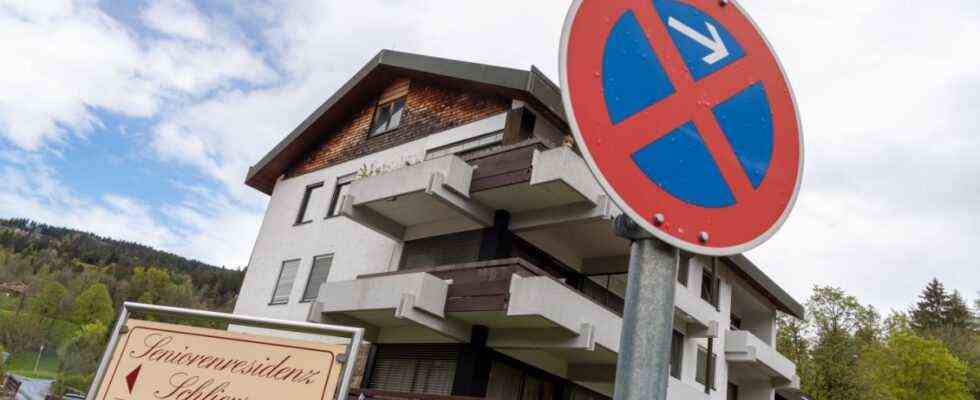The house, around which so many questions revolve, is now empty. At the end of last week, the last of the once 140 residents moved out of the Schliersee senior citizens’ residence. In the weeks and months before that there had already been fewer and fewer people who either wanted to spend their old days there themselves or who wanted their relatives and legal guardians to expect them to do so for longer. The home supervision of the Miesbach district office banned the operation of the nursing home on September 10th – one and a half years after a major corona outbreak occurred in the home in spring 2020. On the occasion, serious lack of care came to light, which had even led to a longer support mission of the Bundeswehr in the home.
Since then, it has also been about the question of whether the authorities in Miesbach and Munich have checked the senior citizens’ residence precisely enough, whether they have drawn the necessary conclusions from it and whether they were even able to draw them. The members of the state parliament in the Committee on Health and Care wanted to know all this from the state government a long time ago. They rejected their written report in a special session on Tuesday as completely inadequate.
Health Minister Klaus Holetschek (CSU) also announced in the spring in connection with the home in Schliersee that his house was examining “whether further improvements to the current control and evaluation system are necessary”. The MPs had hoped for knowledge on this from the report from Holetschek’s house. But to many specific questions, the ministry either did not answer at all or at best gave very general answers, criticized Ruth Waldmann (SPD), Andreas Krahl (Greens) and Dominik Spitzer (FDP) in particular. The Schliersee case is about residents “whose human dignity has been deeply violated,” said Krahl.
In view of the large number of obviously neglected and sometimes malnourished residents, the Munich II public prosecutor’s office has been investigating 88 residents for a long time on suspicion of bodily harm. A specialized unit at the Nuremberg Public Prosecutor’s Office is also investigating suspicions of accounting fraud because the home may have been paid for services for which it did not have the necessary qualified staff.
The working group of the long-term care insurance associations in Bavaria had therefore already announced in May of this year that it would prematurely terminate the supply contract with the home due to “breach of legal and contractual obligations”, thereby depriving the senior citizens’ residence of its economic basis by the end of last month at the latest. It was only long after this announcement that the state home inspectorate decreed that the senior citizens’ residence had to cease operations at the end of November. The sponsor of the home, a subsidiary of a larger Italian home sponsor, has decided to cease operations in Schliersee as soon as the health insurance contracts expired. 14 residents recently moved from there to a senior citizens’ home in Augsburg, which is also operated by the Italian company.
This facility is “closely monitored” by the home supervision of the city of Augsburg, said the responsible ministerial advisor from the Ministry of Health to the members of the committee – just as the ministry and the government of Upper Bavaria had always closely followed the Miesbach home supervision. There were improvements, but they were “unsustainable” so that the home had to be closed in the end. According to the law, such a closure should only be the last resort if all milder means such as freezing admission or changing the management of the home have been exhausted. Something like that is “always a long process”. Above all, however, a change of the carrier, as in Schliersee last in May 2019, puts all procedures to zero.
The MPs, however, did not want to accept that. In Schliersee, for example, the provider may have changed, but not the home supervision and also not the residents, reprimanded Ruth Waldmann and pointed out that in the Schliersee case there had been numerous complaints and numerous controls by the home supervision in recent years, without that a lot has changed in the “appalling conditions”. It must now be a matter of drawing lessons for the future from the case. Krahl also criticized the fact that the authorities up to the state government had not seen themselves prompted to intervene. “Then when?” He asked, expressing a fear: “I’m very, very sure that the situation in the Schliersee senior citizens’ residence is not an isolated incident.” The MPs now expect concrete answers from the state government to their specific questions by the beginning of November.

